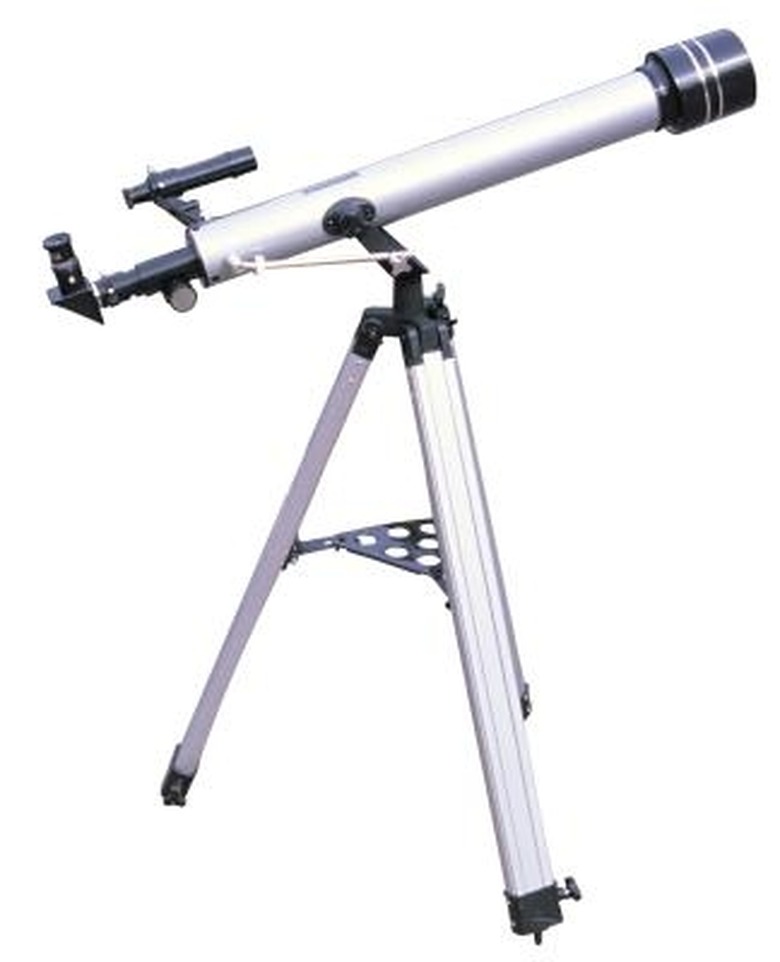What Is A Good Telescope For At Home Use?
There are many types of telescopes available for at-home use. For the beginning astronomer, it can be difficult to decide what telescope is the most appropriate choice. Knowing some of the basics about telescopes—how they work, how large certain telescopes are, costs, upkeep, etc.—can help amateur stargazers decide what telescope fits best with their individual budgets and lifestyles.
Two Primary Types of Telescopes
Two Primary Types of Telescopes
All telescopes work by focusing on the light that reflects off of or is emitted from an image and then magnifying that light, creating a larger and more distinct image than that seen by the naked eye. There are two primary ways of doing this.
Refractor telescopes: Refractor telescopes operate in the same way as binoculars. A convex piece of glass is placed in one end of the telescope (this piece of glass is referred to as the "objective lens"). The lens collects light from an image and bends this light into the telescope. Now that the image is effectively "inside" the telescope, it can be magnified. The eyepiece at the other end of the telescope makes this image appear larger.
Reflector Telescopes: Reflector telescopes use mirrors to capture the light from an image. A mirror (referred to as the primary mirror) is placed in the bottom of the telescope and reflects the image back toward the top. A much smaller mirror is placed on the inside of the telescope, about one-quarter of the way from the top. This mirror reflects the image through an eyepiece placed on the side of the telescope.
Choosing the Right Telescope
Choosing the Right Telescope
Both refractor and reflector telescopes can be used at home, and they come in a variety of sizes, makes and models. The determining factors for choosing a telescope are what you expect to get out of the stargazing experience, whether it will be used inside or outside, whether you plan to travel with it, and how much light is in the surrounding area.
Generally, the higher a telescope's aperture (its ability to collect light), the better it will be at viewing distinct features in the night sky. A telescope's aperture is in positive correlation to the size of the objective lens or primary mirror. From a suburban setting, it is possible to see craters on the moon with an aperture of 2 to 3 inches. To see the rings around Saturn, however, a 6- to 9-inch aperture will be necessary. Furthermore, the closer you live to a city or other light area, the more light pollution there will be, and the more difficult it will be to view certain stellar bodies. From an apartment in the middle of San Diego, it may be nearly impossible to view Jupiter without an 8-inch aperture. From the top of a dormant volcano in Hawaii, however, it may be relatively simple to spot different galaxies with a 6-inch aperture. What you plan to view and where you live are major factors in choosing a telescope.
If price is an issue, reflector telescopes are almost necessarily the way to go. Making the lenses for refractor telescopes is an expensive and difficult process; this is reflected (no pun intended) in the price of refractor telescopes. It is often beneficial to look in newspapers and peruse the Internet for used telescopes. Most serious individuals take care of their astronomical equipment, and you can likely get a telescope for half the price of a new one.
Furthermore, size will probably be an issue. A 10-inch reflector telescope in a studio apartment is going to take up a lot of space. If you plan to take the telescope to darker areas such as fields or parks, it will also probably be beneficial to get a smaller, more portable telescope. Refractor telescopes, because of their design, are often a bit smaller and easier to transport. If this telescope will reside in a garage or attic until Friday night when it is transported a short distance to the driveway or backyard, a larger reflector telescope might be more beneficial.
These are all issues worth considering before purchasing a telescope, and they will be different for every individual. Consider your location, your budget, and what you expect to get out of your telescope, as all of these will ultimately impact the enjoyment that you derive from your stargazing experience.
Cite This Article
MLA
Cruz, Joshua. "What Is A Good Telescope For At Home Use?" sciencing.com, https://www.sciencing.com/good-telescope-home-use-5242202/. 24 April 2017.
APA
Cruz, Joshua. (2017, April 24). What Is A Good Telescope For At Home Use?. sciencing.com. Retrieved from https://www.sciencing.com/good-telescope-home-use-5242202/
Chicago
Cruz, Joshua. What Is A Good Telescope For At Home Use? last modified August 30, 2022. https://www.sciencing.com/good-telescope-home-use-5242202/
